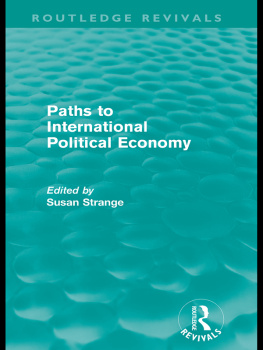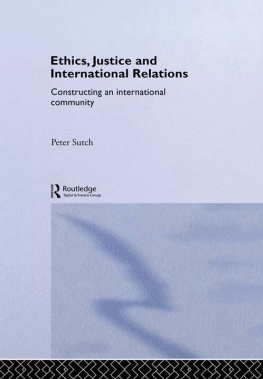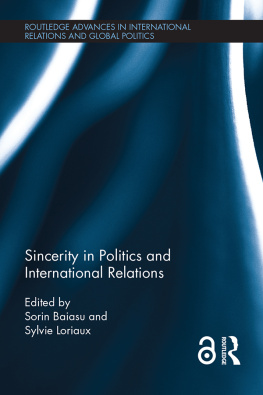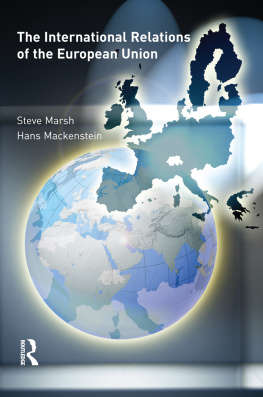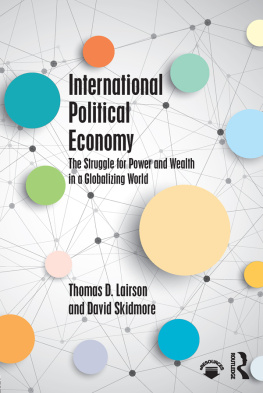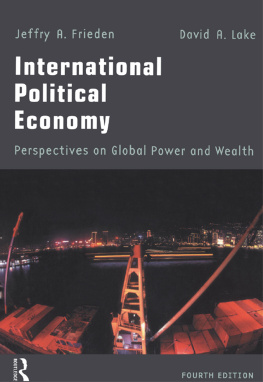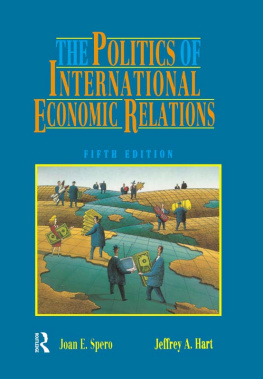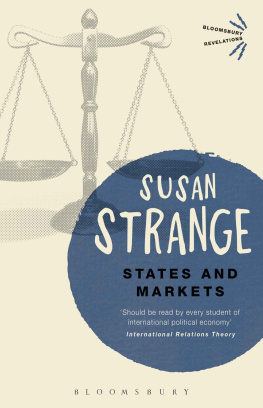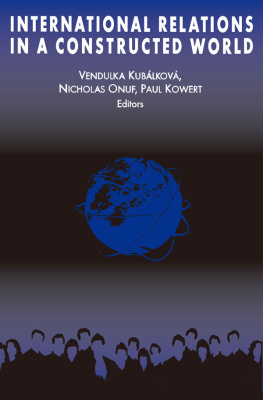ROBERT O. KEOHANE
My earliest memory of Susan Strange is not of her in person, but of her 1971 book, Sterling and British Policy. I have a vivid memory of being in the Stanford University Library thinking about her discussion of how the British government responded to financial markets in the first quarter-century after World War II. Of course, I also remember Susan Strange in person: the pierced brow when one said something she doubted, the quick retort, her wonderful sense of humor and joy in life. Her winning irreverence was never better exhibited than at her Presidential Address to the International Studies Association (ISA) in 1995, when she advised her audience: Dont take too much notice of the barons and the top brass. Have the courage to do your own thing, and say what your really think, not what other people have told you to think (Strange 1995:295). She always did, and we are wiser for it.
As Strange said in the preface to States and Markets (1988), she and I were part of the same extensive invisible college, even though, as she wrote, there are many things on which we do not always agree (Strange 1988/1994: acknowledgement). I am proud to have been part of her invisible college, even if we do not agree loomed rather large in her discussions of my own contributions. At any rate, my plan in this foreword is to seek to identify the themes that I perceive in Stranges work, as well as the themes on which she showed great ambivalence. I only wish that she could be here to point out to me, once again, how I have missed the point!
Five themes seem to me to dominate Stranges approach to the analysis of international political economy. I refer to themes rather than to moods such as her mood of pessimism about the world economy and its financial system. I focus on her analysis of the underlying relationships between politics and economics, rather than on her arguments with respect to particular sectors of the world economy. These five themes might not be the ones that Strange herself would have chosen but they are the themes in her work that have made the most impression on me and, I believe, constitute the essence of her intellectual legacy to international studies.
The first theme that I want to emphasize is that structural power is crucial to the study of international political economy. Strange was interested in structures rather than processes, which she regarded as derivative and often misleading to academics because of the dissimulation engaged in by practitioners. For her, structural power is the power to choose and to shape the structures of the global political economy within which other states, their political institutions, their economic enterprises, and (not least) their professional people have to operate (Strange 1987: 565). She identified four domains of structural power: security, production, finance and knowledge. For her, structural power was more fundamental than either bargaining or agenda setting through international regimes.
To say that Strange privileged structure is not to argue that she ignored agency. In my analysis, a focus on agency is her second theme. Throughout her writings, she emphasized the role of self-interested agents, seeking control over valued outcomes such as security, wealth, the freedom to choose, justice, protection from risk (1994: 18). For her, the core of international political economy lies in the relations between markets and authorities. She declared in 1994 that this is how she should have entitled her seminal work, States and Markets (ibid.: x). I find the authoritiesmarkets formulation illuminating and complementary to Robert Gilpins emphasis on the intersecting pursuit by agents of power and wealth. Stranges method followed from her focus on agents: you should look for the key bargains in any situation, then assess which bargains might change (Strange 1988/94:39). In my view, this is excellent advice. Dont look for paradigms, look for bargains!
The world Strange portrayed was a tough one, whose agents were fundamentally out for themselves. She often complained that they could not see their self-interest, that they were caught up in competitive activity that was self-defeating, or even that they were irrational (Casino Capitalism, 1986; Mad Money, 1998). She urged them often to pursue their interests in more sensible and sustainable ways; but she never urged them to be good, or to put the global interest (a phrase she never would have used without irony) over their own. That, she thought, would have been foolish.


